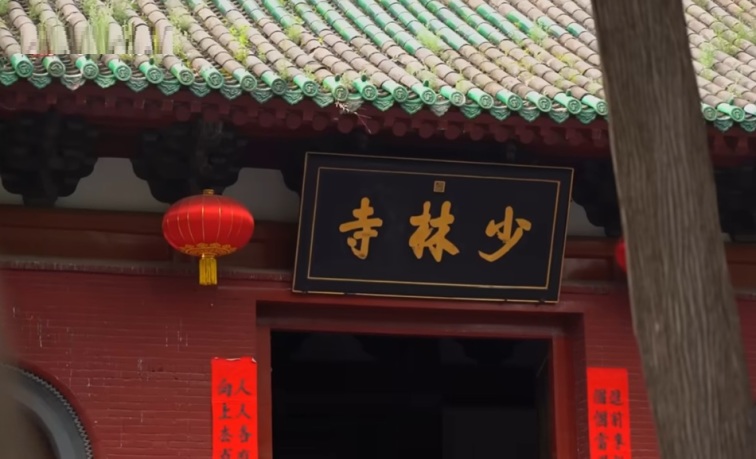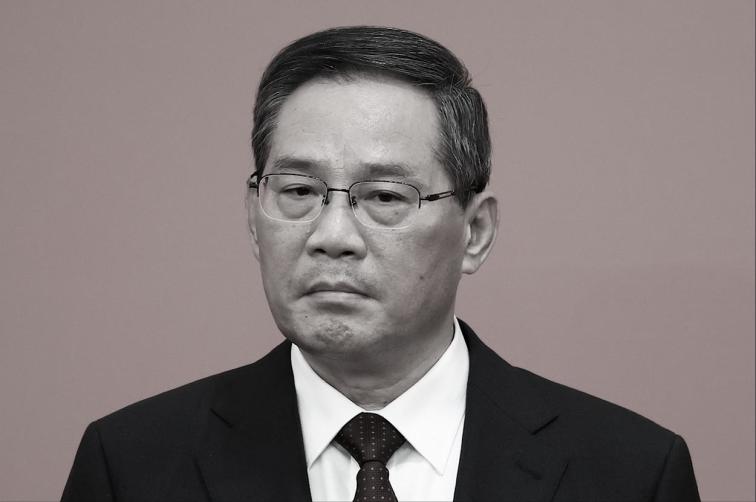On August 4, 2025, thousands of citizens gathered in front of the Jiangyou City Government to protest, which led to a violent crackdown by authorities and resulted in bloodshed. (Video screenshot)
[People News] The protest that took place in Jiangyou in the early hours of August 5 has sent shockwaves across various sectors. By noon on August 5, the protest area in front of the Jiangyou City Government had been thoroughly cleaned up by the authorities, seemingly erasing all traces of the previous night's protests. Commentators suggest that as the authorities continue to violently suppress public protests, public grievances are mounting, and the populace is becoming more aware. However, the question remains: how can protests and rebellion be successful?
On August 6, the Jiangyou police issued another response regarding the bullying incident, stating that the perpetrators had apologised to the victims. They urged netizens to refrain from sharing related videos any further. Furthermore, the police have penalised two netizens, accusing them of 'seriously disrupting public order and causing a negative social impact by spreading rumours.'
Following the bullying incident, some individuals online began to investigate the backgrounds of the perpetrators, claiming that one of the perpetrators' fathers is the deputy director of the Jiangyou City Public Security Bureau, while another's father holds the position of deputy secretary of the Jiangyou City Party Committee and political commissar. On August 5, the 'Mianyang Internet Police' WeChat account released another statement indicating that those spreading rumours about the incident have been dealt with according to the law. The statement clarified, 'After verification, the parents of the three lawbreakers include two who are unemployed, two who are working outside the province, one who is a local salesperson, and one who is a local delivery worker. The information regarding the occupational identities of the lawbreakers' parents is a rumour.' It also warned that those who fabricate rumours for attention will face 'administrative penalties from the public security authorities.'
Videos circulating online show that the Jiangyou police initiated a violent crackdown in the early hours of the 5th, conducting large-scale clearances and arresting protesting citizens, resulting in a chaotic scene. However, by noon on the 5th, the protest area in front of the Jiangyou City government was completely unrecognisable, showing no signs of the intense struggle that had occurred over the previous day and night.
Self-media personality Gongzi Shen, who has expressed concern over the Jiangyou incident, remarked in a program that everything in Jiangyou City, Sichuan, is calm, as if nothing had happened the night before. This calmness is a result of the complete suppression of the incident.
He argues that the government's decision to deploy such a large number of military and police forces to beat and arrest protesting citizens reflects a form of arrogance in power. 'The Communist Party cannot afford to lose face; after ruling for so many years, you actually dare to challenge me. This has made the authorities unable to tolerate the fact that these crowds would stand up for a little girl, seek justice for her, and even dare to challenge authority.'
He stated that for the Communist Party, violence is the only language they comprehend. As long as they perceive a threat to their power and stability, they will exert maximum force to crush all dissenters. If this situation persists, the protesters will overthrow the Communist Party, and Xi Jinping will have to resign.
Gongzi Shen analysed that this protest is characterised by a lack of organisation, planning, and strategic direction; everyone is like loose sand, making it easy to be scattered. He believes that in today's world, success requires organised confrontations, rather than a struggle between individuals and a large organisation.
Additionally, Gongzi Shen emphasised that the journey ahead is long and challenging, and one should not lose heart. Public discontent is building, and the populace is awakening. Although this protest has been dismantled, the public has already lost faith in the government. 'I have consistently stressed that the Communist Party will inevitably collapse, as this collapse cannot be achieved through a single protest; it requires a combination of various factors, including timing, location, and human resources. When the wall falls, everyone will push,' Gongzi Shen remarked.
So, how can rebellion be successful? Political commentator Wen Zhao provided a thorough analysis during the program.
Wen Zhao pointed out that initially, it is crucial to persuade people that their participation is not an act of rebellion. Many participants in sudden social upheavals do not view themselves as rebels in the early stages.
Wen Zhao provided an example.
During the 1989 Tiananmen Democracy Movement, the Chinese Communist Party (CCP) labelled the protests as a riot in an editorial published in the People's Daily on April 26. However, neither citizens nor students saw themselves as part of a riot. The students and intellectuals believed they were exercising their fundamental constitutional rights to assembly and freedom of speech, while the citizens viewed the students' demands for anti-corruption as a patriotic act.
Wen Zhao (Wén Zhào) emphasised that another essential condition for such movements is the presence of a reliable organisational force from the outset, which must be deeply rooted in a solid community.
What kind of community is this? Wen Zhao (Wén Zhào) provided examples, ranging from the Tiandihui (Heaven and Earth Society) in the early Qing Dynasty to the Baishangdi Society in the mid to late Qing Dynasty, and later to the Xingzhonghui (Revive China Society) and Tongmenghui (Chinese United League). These are all underground societies that have existed in China since the Ming and Qing Dynasties.
What is the essence of these societies? Wen Zhao (Wén Zhào) further explained that the lack of a social welfare system during that time, combined with wars and natural disasters that displaced farmers and created urban unemployment, led to the formation of mutual aid organisations for support. Essentially, these groups originated from grassroots self-help initiatives, such as the Salt Gang and the Cao Gang.
Wen Zhao (Wén Zhào) pointed out that the fulfilment of all these conditions prepared the social environment for rebellion. However, the Communist Party is also acutely aware that having the right conditions alone is insufficient for a successful rebellion; strong leadership is crucial.
Wen Zhao further analyses, stating, 'The students who participated in the hunger strike at Tiananmen were unable to establish an effective leadership structure, and the developments during the 2019 Hong Kong anti-extradition movement similarly illustrate the lack of leadership among the protesters. The protests led by young people are decentralised and spontaneous, lacking a representative leadership force, which prevents them from elevating their protests and riots to a strategic level.'
What kind of leadership is needed?
Wen Zhao explains that prior to the rise of the Communist Party, revolutionary leadership was often provided by local strongmen—powerful families within a region who could consolidate the widespread discontent in society under a single banner.
However, Wen Zhao also stresses that establishing effective leadership is not a problem that can be resolved quickly. The current trend suggests a slow evolution akin to the underground civil society seen at the end of the Qing Dynasty. Yet, to lead a transformative change that can fundamentally alter society, this type of leadership is clearly insufficient.
At present, China's economy is facing a severe downturn, and unemployment is worsening. Numerous scholars have pointed out that the youth unemployment rate in China reached 46.5% in 2023. The employment rate for university graduates in China in 2024 is projected to be around 30% to 35%, and it is unlikely to exceed 40%. The situation is expected to deteriorate further in 2025.
If the number of unemployed individuals in China continues to soar, and even those with postgraduate degrees and graduates from prestigious 985 universities are resorting to delivering takeout, what will happen when the social welfare assistance system is inadequate?
Wen Zhao analysed that the current generation of young people in China, aside from their parents, finds themselves without any relatives in the world. Most of their parents have not yet reached retirement age and are currently facing significant economic instability. In this atmosphere of unrest and difficulty, it is inevitable that people's dissatisfaction will grow.
"The loss of a sense of security leads people to gather together, complain, and express their frustrations. More individuals will come to realise that the challenges they are facing are not entirely their fault, and certainly not solely due to a lack of effort; rather, these issues arise from societal responsibilities. This is largely true. If someone were to announce an escape route at this moment, people would flock to it, easily creating a clustering effect that could result in political changes."
Wen Zhao previously stated on a program: "A 20% unemployment rate is considered the threshold that society can tolerate." In most countries, if the unemployment rate remains between 10% and 20% for several years, it typically leads to large-scale street protests and riots, a visible rise in suicide and crime rates, and frequent government reshuffles and resignations.
(First published by People News) △










News magazine bootstrap themes!
I like this themes, fast loading and look profesional
Thank you Carlos!
You're welcome!
Please support me with give positive rating!
Yes Sure!